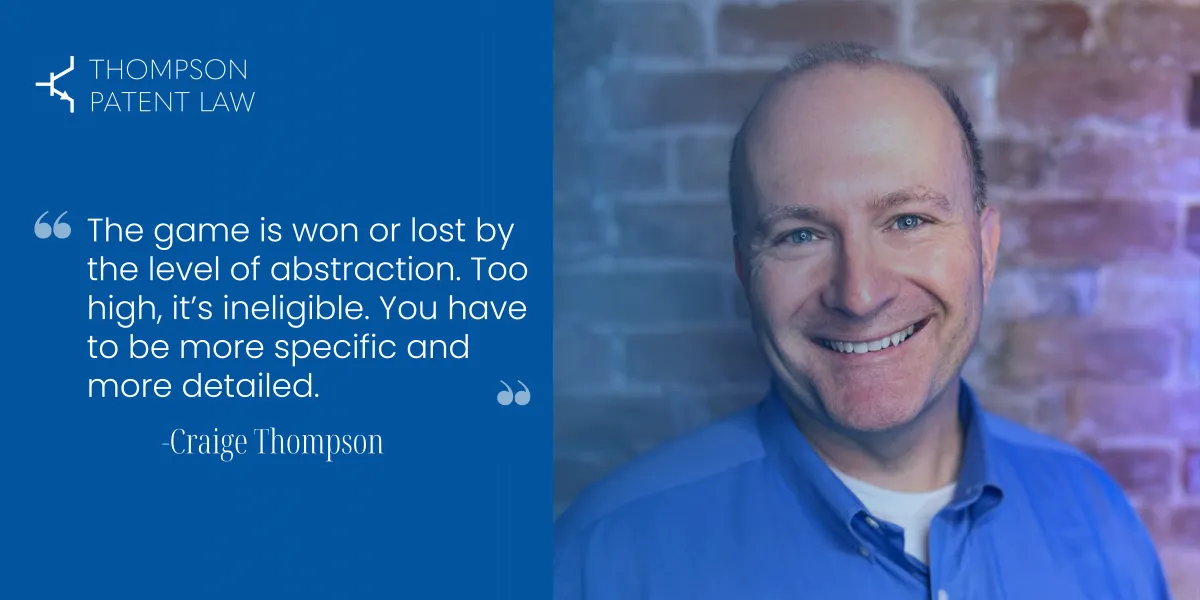
info@thompsonpatentlaw.com

6 Keys So You Can Profit by Patenting Software: The Post-Alice Landscape and the Critical Role of Skilled Patent Counsel (Post 1 of 6)
The Post-Alice Landscape and the Critical Role of Skilled Patent Counsel
6 Part Series: 6 Keys You Need So You Can Profit by Patenting Software
This is the first in a series of 6 posts for decision-makers who are responsible for protecting high value, innovative software.
Introduction: Why Alice Matters
Alice Corp v. CLS Bank was a landmark decision by the U.S. Supreme Court in 2014 that drastically changed the software patent landscape. It presented a two-step test for patent eligibility, turning many pre-existing notions on their head. If you're looking to patent software technology today, understanding this decision is not just useful—it's critical.
The Complexity of the Post-Alice Era
The Alice decision has made patenting software more challenging, adding a layer of complexity and uncertainty. Software claims now need to be tailored carefully to pass the scrutiny of the Alice two-step test. Any misstep can lead to failed patent applications, loss of investment, and, even worse, a compromised competitive edge.
Skilled Counsel: The Make-or-Break Factor
In this era of increased scrutiny, having skilled patent counsel is essential. You need experts who are up-to-date, understand the subtleties of the Alice decision, and can navigate through the complexity to secure strong patents. The quality of your patents, and hence their business value, is heavily reliant on your patent firm's skillset.
Actionable Business Take-away
If you want to protect your software innovations and derive tangible business value from them, investing in a patent firm with proven experience in the post-Alice landscape is a non-negotiable first step.
Next Up: Demystifying a Landmark Software Patent Case
Intrigued about how this plays out in the real world? In the next article, we'll dive into a case study that perfectly illustrates the power of skilled patent drafting in the post-Alice era. We're going to look at the DDR Holdings v. Digital River case and dissect why it has become a seminal reference for patenting software technologies today. You won't want to miss this—stay tuned!
To read the next article in this series immediately, click here now.
P.S. If you want to learn even more about the correct ways to protect software with patents in the post-Alice era, check out Craige's Litigation Quality PatentCast here.
Click here to listen to Craige's PatentCast on Protecting Software with Patents
